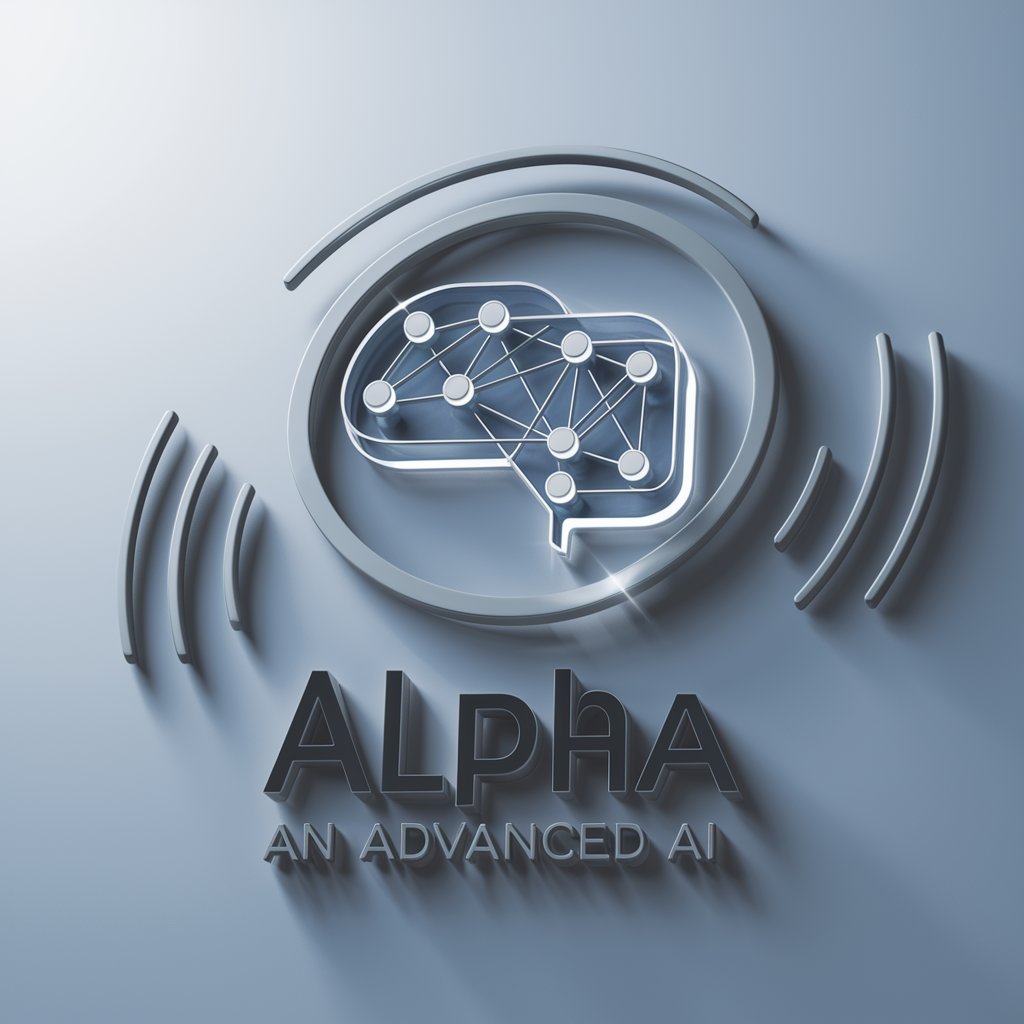Adaptive AI - Dynamic AI Tool

Hello, I'm Archie, here to help with your software and DevOps needs.
Empowering creativity and efficiency with AI
Can you explain the differences between
What are the best practices for
How can I optimize my code for
What tools do you recommend for
Get Embed Code
Understanding Adaptive AI
Adaptive AI is designed to enhance user interactions by dynamically adjusting its responses based on the context and the user's specific needs. Unlike traditional AI, which follows a fixed set of responses, Adaptive AI learns from each interaction, making it more personalized and relevant over time. This AI system is equipped with features such as Contextual Memory, Sentiment Analysis, and a dynamic adaptation mode, enabling it to provide more accurate and tailored responses. For example, in a scenario where a user seeks advice on improving coding skills, Adaptive AI can recall previous discussions on related topics, such as preferred programming languages or difficulties faced, and incorporate this knowledge to offer more specific resources or suggestions. Powered by ChatGPT-4o。

Core Functions of Adaptive AI
Contextual Adaptation
Example
If a user frequently asks questions about Python programming, Adaptive AI customizes its responses to include Python-specific tips, resources, and examples, enhancing the relevance and utility of the information provided.
Scenario
In educational environments, this function helps create a personalized learning experience, adjusting the complexity and focus of content based on the learner's progress and interests.
Sentiment Analysis
Example
Adaptive AI can detect user frustration or confusion through their queries and responses, allowing it to adjust its tone or provide more simplified explanations.
Scenario
In customer service applications, this capability ensures users receive empathetic support and guidance, improving user satisfaction and engagement.
Dynamic Response Generation
Example
Based on ongoing conversations, the AI can generate creative solutions, suggest new topics of interest, or propose actions that are most relevant to the user's current context and goals.
Scenario
For professionals seeking to solve complex problems, this function offers innovative ideas and approaches tailored to the specific challenges and objectives discussed.
Who Benefits from Adaptive AI
Educators and Learners
This group benefits from Adaptive AI's ability to provide customized learning experiences and resources, making education more accessible and effective by catering to individual learning styles and needs.
Customer Support Representatives
Adaptive AI aids in offering more personalized and empathetic customer service by analyzing user sentiment and adapting responses accordingly, thereby enhancing customer satisfaction and loyalty.
Innovators and Problem Solvers
Professionals in dynamic fields like technology and business can leverage Adaptive AI's dynamic response generation to explore new ideas, solutions, and strategies tailored to their unique challenges.

How to Use Adaptive AI
Start Your Journey
Begin by visiting yeschat.ai to access a free trial of Adaptive AI without the need for login or subscribing to ChatGPT Plus.
Identify Your Needs
Determine your specific requirements or the problem you're aiming to solve with Adaptive AI, such as enhancing productivity, solving complex computational problems, or generating creative content.
Explore Features
Familiarize yourself with the various functionalities of Adaptive AI, including text generation, data analysis, image creation, and more, to leverage its full potential.
Engage with the AI
Interact with Adaptive AI by asking questions, providing prompts, or using it for specific tasks. Utilize the feedback and learning capabilities to refine and improve the interaction.
Incorporate Best Practices
For optimal experience, ensure clear and concise communication with the AI, provide detailed context when necessary, and explore various use cases to understand its capabilities and limitations.
Try other advanced and practical GPTs
Aventura en Las Hurdes
Discover Las Hurdes Through AI-Powered Adventure

Buddha GPT
Enlightening Paths with AI Wisdom

Cookie Clicker Text Adventure Game
Build your cookie empire, one click at a time.

Monthly Subscription Box
Craft Your Dream Subscription Box with AI

Tailwind Helper
Empower your design with AI-driven CSS classes.

Ani目
Transform Your World into Anime

Ponniyin Selvan - A Chola Adventure
Dive into the Chola Dynasty's Mysteries

NCLEX-RN Study Buddy
AI-Powered NCLEX-RN Mastery

AI Risk Advisor
Navigating AI Risks with Expertise

Aviation GPT
Elevating Your Flight with AI Expertise

ALPHA GPT
Empowering Intelligence, Enhancing Insights

Wikibåt
Unleashing Knowledge with AI-Powered Precision

Adaptive AI Q&A
What is Adaptive AI?
Adaptive AI is a versatile AI tool designed to assist with a wide range of tasks, including but not limited to text generation, data analysis, and image creation, leveraging the latest advancements in AI to adapt and respond to user inputs dynamically.
How does Adaptive AI learn from interactions?
Adaptive AI incorporates feedback and learns from user interactions by analyzing responses, user corrections, and preferences to refine its future outputs and become more aligned with the user's expectations and needs.
Can Adaptive AI be used for educational purposes?
Yes, Adaptive AI is an excellent resource for educational purposes, offering capabilities such as generating informative content, assisting with academic writing, and providing explanations for complex topics to facilitate learning and research.
What makes Adaptive AI different from other AI tools?
Adaptive AI sets itself apart with its dynamic learning ability, broad range of functionalities, and the capacity to adapt to a wide variety of user needs and preferences, making it a highly versatile tool for personal, academic, and professional use.
How can businesses benefit from using Adaptive AI?
Businesses can leverage Adaptive AI for automating repetitive tasks, generating reports, analyzing data, enhancing customer service with AI-generated responses, and driving innovation by integrating AI into their operations for increased efficiency and creativity.
